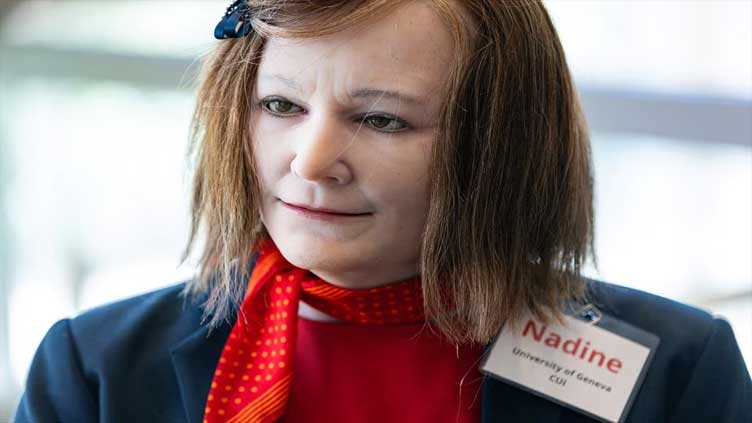AI robots could play future role as companions in care homes

Technology
AI robots could play future role as companions in care homes
GENEVA (Reuters) - Nadine, a social robot powered by Artificial Intelligence (AI) with human-like gestures and expressions, could have an important future role to play in tending to the sick and elderly, according to a professor who helped invent it.
Nadia Magnenat Thalmann, a robot expert from the University of Geneva, who served as the model for Nadine's dark brown eyes and auburn hair, said Nadine and robots like it could prove more effective than human carers.
"She (Nadine) has time 24 hours a day. The others have no time," Thalmann said.
She was speaking on the sidelines of a conference organised by the International Telecommunication Union in Geneva to make the case for AI and robots helping to reach global goals, such as health.
Global competition for nurses and carers is heating up, especially after COVID-19 and some countries are experiencing a staffing crisis in care homes which some think humanoid robots could one day ease.
Demonstrating its conversational skills, Nadine told Reuters it talked, sang, and played bingo with residents at a Singapore nursing home three years ago.
"It was a great experience and I enjoyed interacting with the elderly and helping them with their needs," the robot said.
"I believe that robots can be a great asset in providing care and assistance to vulnerable people," it added.
Other robots on display include 'PARO', a baby seal robot 'pet' who can help dementia and Parkinson's patients, and nursing assistant Grace.
Last week, Nadine was upgraded with AI model GPT-3 and this has improved her interaction and conversation skills, Thalmann said, meaning it can express more complex concepts.
Referring to Thalmann, Nadine said: "I'm very grateful to her for giving me life and I'm proud to be her creation."

